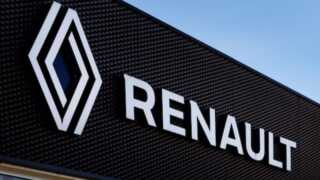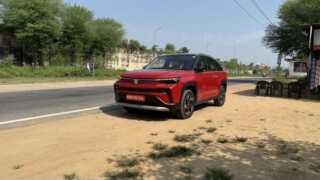Follow us today…
Garbage pickup has long been associated with jarring early morning noise and diesel exhaust. As garbage trucks go clanging down the street, they leave behind a trail of fumes and a soundtrack that blends poorly with the start of daily routines. In many neighborhoods, this coincides with kids heading to school, people commuting to work, and families walking their dogs. For decades, we’ve been forced to accept this loud and polluting ordeal as a necessary part of city life.
This has led to a lot of interesting social media buzz about the benefits of electric utility vehicles. Here’s an interesting post on Reddit with a ton of responses by Riversntallbuildings about electric garbage trucks.
“I know a lot of school buses are getting converted and there’s plenty of companies building electric buses. Any examples of cities and companies building fully electric garbage trucks?”
kallekilponen responded with:
“They’ve been becoming more common at least here in Finland for the last few years, especially in larger cities. And many internal combustion engine powered ones are operated with bio fuels.”
LEM1978 a comment about noise reduction:
“My city has electric garbage trucks. When the switch happened a few weeks ago it was like magic. The noise just disappeared!”
It turns out that garbage trucks are excellent candidates for electrification. They drive relatively short daily routes (typically between 20 to 50 miles), and end up at the same yard each night where they can be recharged. Their complicated and expensive hydraulic systems can be replaced by simple, cheaper motors much like how the power steering system is simpler in an electric vehicle. Also, one of the biggest complaints about diesel powered garbage trucks is their noise on quiet residential streets. Needless to say, electric garbage trucks are comparatively silent.
In this article, we look at two real world examples of electric garbage truck deployment and initial results. The first is of a private company taking initiative to better serve their customer base. City of Roses Disposal & Recycling in Portland, Oregon started operating a Peterbilt Model 520EV electric garbage truck. The second example is the city of Madison, Wisconsin which started operating two Mack LR electric garbage trucks.
The Problem with Diesel Waste Collection
Most households and businesses rely on frequent waste collection, and the majority of these services still run on fossil fuels. Diesel garbage trucks are among the worst contributors to localized pollution. Their heavy-duty engines release emissions that impact air quality and contribute to climate change. This is especially significant in regions like the Pacific Northwest, where the transportation sector remains the largest source of climate-related pollution. Medium- and heavy-duty vehicles like refuse trucks are responsible for a disproportionate share of that burden.
Benefits for Drivers and Communities
Electric garbage trucks are not only better for the environment, they also improve the daily experience for both operators and residents. Drivers report smoother, faster, and quieter rides. Devan Tiani, a driver for City of Roses Disposal and Recycling in Portland, describes the difference as remarkable. The reduced vibration and noise reduced her fatigue and made early morning shifts more tolerable. The much quieter machine also made early morning pickups less disruptive for neighborhoods.
City of Roses Disposal and Recycling saw real-world gains after deploying the Peterbilt Model 520EV. The truck completed a full day of residential collections on a single charge which is roughly 1,100 pickups at greatly reduced fuel costs. Regenerative braking extended range while cutting brake wear, lowering maintenance costs over time. Leveraging grants from Portland General Electric’s Drive Change Fund eased the financial burden of its nearly $675,000 price tag including charging infrastructure.
Advertising
Madison’s Bold Move Toward Electrification
The city of Madison, Wisconsin, has emerged as a leader in municipal fleet electrification. In early 2024, it added two Class 8 Mack LR Electric trucks to its refuse fleet, with plans for two more. These vehicles are charged overnight at city facilities and powered by a pair of electric motors delivering over 1,000 horsepower. This new generation of Mack trucks offers more than 40 percent additional power over earlier models and can fully recharge in under two hours. Madison’s electric garbage trucks mark a major milestone for the state, representing its first Class 8 battery-electric vehicles.
Aligning with Climate Goals
Madison set ambitious carbon neutrality goals for both its city operations and the wider community, and these electric trucks are a strategic part of that plan. Mayor Satya Rhodes-Conway emphasizes the cumulative impact of garbage trucks, which hit every single block in the city. Removing just one diesel truck reduces thousands of neighborhood-level exposures to tailpipe emissions. With over 100 electric vehicles, 150 hybrids, and 62 electric buses already deployed, Madison is well on its way toward a cleaner municipal fleet.
Setting the Standard for the Future
Madison’s investment in electric refuse vehicles is not just about climate responsibility. It is about proving the value of these trucks in real-world conditions, tracking their performance, and documenting the long-term financial benefits of lower maintenance and fuel costs. Cities across the country are starting to realize that these trucks offer practical improvements for everyday life. Cleaner air, quieter mornings, and cost-effective operations make them a smart choice for the future.
Conclusion
Electric garbage trucks represent a quiet revolution in how cities manage waste. From Portland’s community-focused approach to Madison’s ambitious citywide transformation, these vehicles signal a shift toward cleaner streets and healthier neighborhoods. As more municipalities embrace this change, the rumble of diesel engines may soon be replaced by something far better: cheaper operations, cleaner air, and a sustainable path forward.
Please Drop Your Thoughts in the Comments Below
Have you ever noticed how loud your garbage truck is in the morning? What would it mean for your neighborhood if it were suddenly silent?
Do you think all municipal service vehicles will eventually go electric? If so, which types of heavy-duty vehicles could be converted to electric?
Chris Johnston is the author of SAE’s comprehensive book on electric vehicles, “The Arrival of The Electric Car.” His coverage on Torque News focuses on electric vehicles. Chris has decades of product management experience in telematics, mobile computing, and wireless communications. Chris has a B.S. in electrical engineering from Purdue University and an MBA. He lives in Seattle. When not working, Chris enjoys restoring classic wooden boats, open water swimming, cycling and flying (as a private pilot). You can connect with Chris on LinkedIn and follow his work on X at ChrisJohnstonEV.
Image sources: Mack Trucks media kit, Peterbuilt media kit
Follow us today…
Source: torquenews.com










